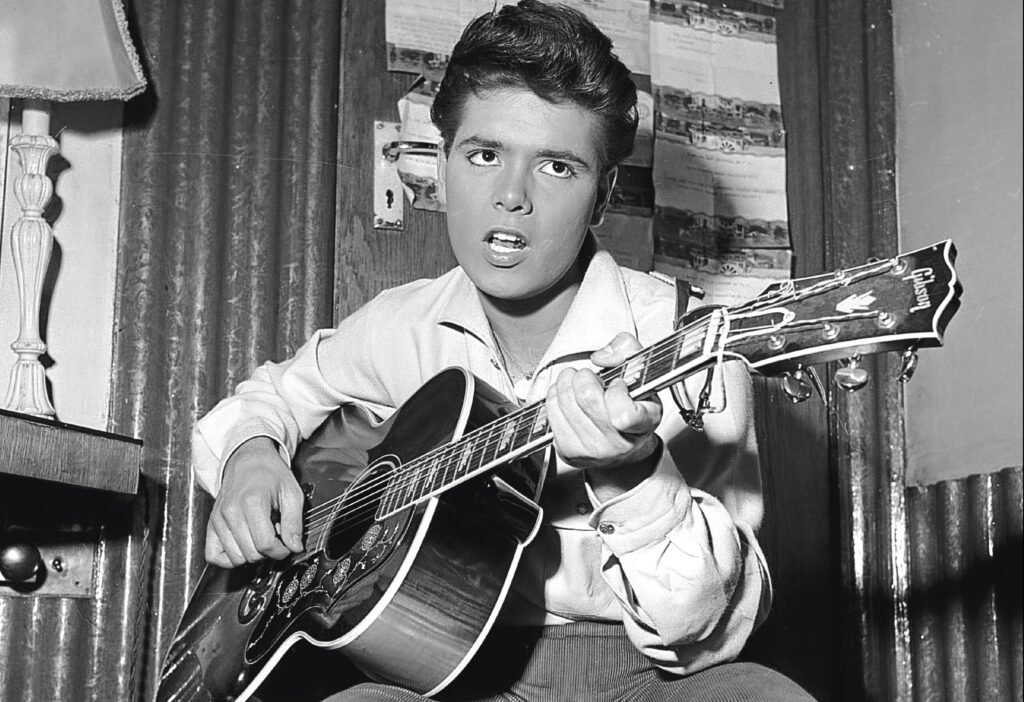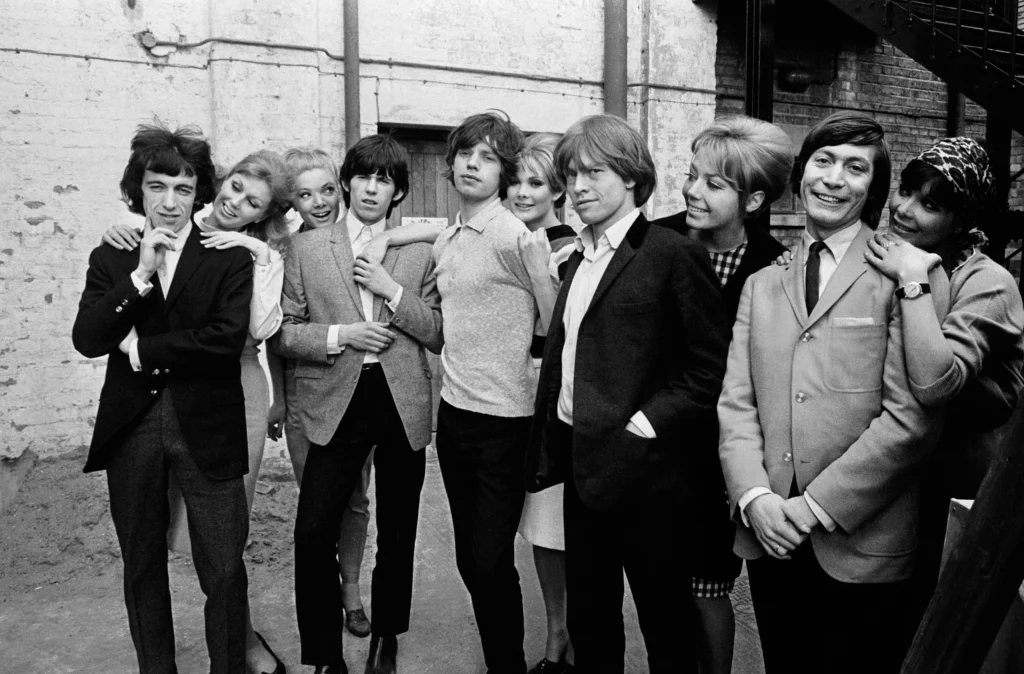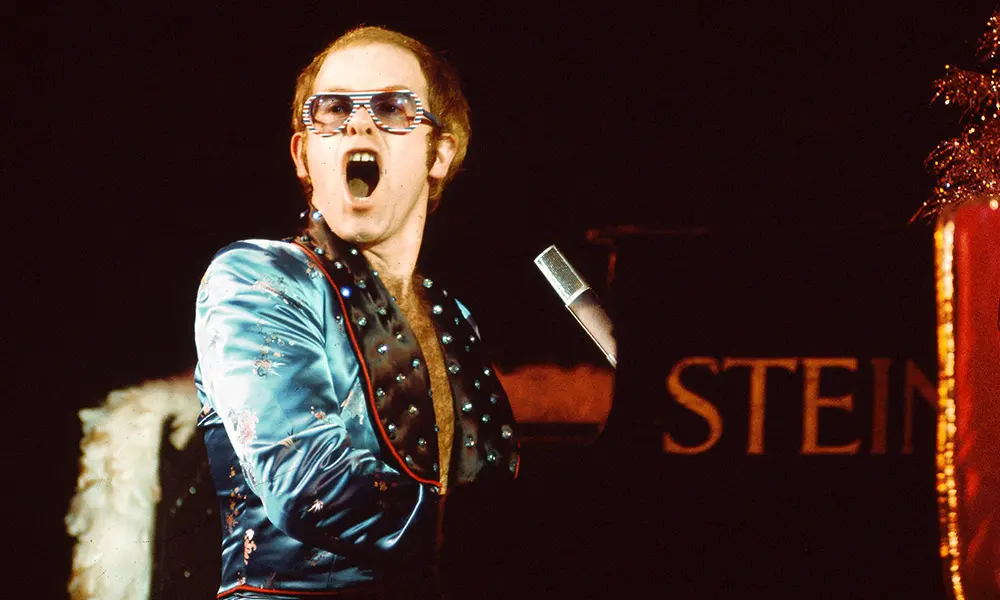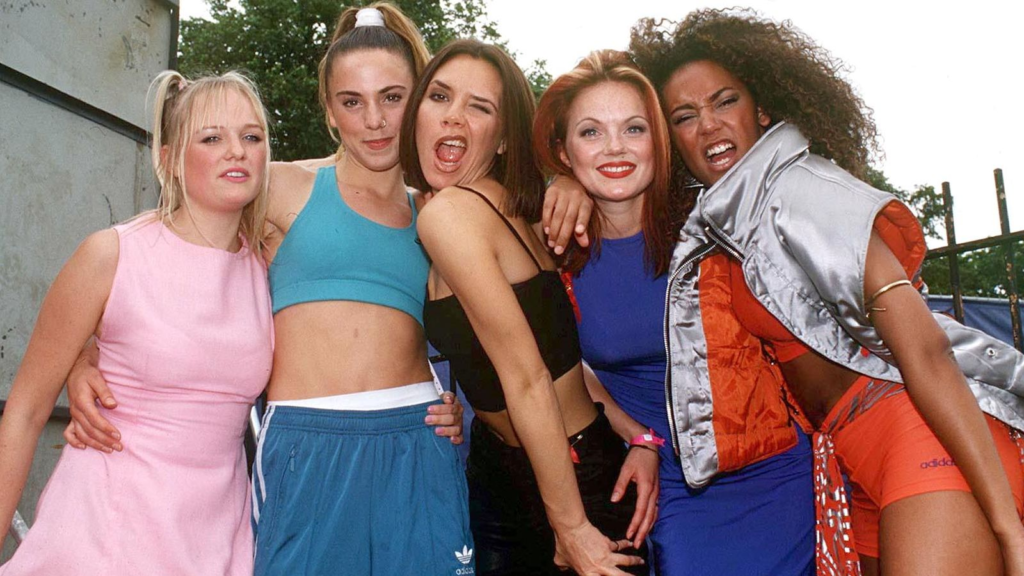It naturally follows that the biggest musicians in the world will have a plethora of number one singles under their belt. However, as we shall see, the first number ones of the most famous artists are sometimes their most famous, sometimes not; sometimes their debut, sometimes after many singles – but always notable. These are the first UK No. 1 singles of some of the biggest musical acts of the 20th century.
First UK No. 1 ; Elvis – “All Shook Up” (1957)

Rather surprisingly, Elvis’ memorable breakthrough commercial hit “Heartbreak Hotel” only peaked at number two in the UK, whilst subsequent memorable tracks such as “Hound Dog” and “Love Me Tender” also failed to top the charts.
The first of a record 21 number one singles to hit the lauded spot was the sub-two-minute ditty “All Shook Up”. And what a hit it was, remaining at the top spot for seven weeks.
It was eventually knocked off its perch by Paul Anka with megahit “Diana”.
First UK No. 1 ; Cliff Richard – “Living Doll” (1959)

Prior to the emergence of The Beatles, Britain’s primary musical heartthrob was a certain Harry Webb, who went under the stage name Cliff Richard.
Dethroning Bobby Darin’s “Dream Lover”, Cliff was able to nab his first number one single in July 1959 with the popular single “Living Doll”. The song was to be the last single released by Cliff with the backing band The Drifters, who – for legal reasons over the group’s name resembling an American band of the same name – soon found the more famous moniker of The Shadows.
It would be the biggest-selling single of 1959, with Richard being presented with a gold record in 1960. It was also a rare British hit to translate to stateside success, preceding the British Invasion moment.
Cliff would have another chart-topper with the song in 1986 when a Comic Relief single was issued, featuring the cast from the TV show The Young Ones.
First UK No. 1 ; The Beatles – “From Me To You” (1963)

Contrary to popular belief, The Beatles – at least in regard to UK chart success – did not exactly burst onto the scene from the get-go. Indeed, debut single “Love Me Do” barely cracked the top 20.
After “Please Please Me” was held off the peak position by Frank Ifield and later Cliff Richard, “From Me To You” gifted the band their first number one. An upbeat, pop track which demonstrates the band’s distinctive harmonies, it – like “Love Me Do” – features the scarcely-utilised harmonica.
Spending seven weeks at the helm, Paul McCartney later described how the single was the first to give the band a true taste of success, remarking: “The first I thought we’d really made it was when I was lying in bed one morning and I heard the milkman whistling “From Me To You”.”
It would be the start of a historic chart history for “The Fab Four”, who would go on to achieve accolades such as the first band to displace themselves at number one, the most consecutive number one singles at 11, and the first act to occupy the top two spots (which they did twice).
First UK No. 1 ; The Rolling Stones – “It’s All Over Now” (1964)

In the early days, The Beatles had rivals – namely The Dave Clark Five – but were clearly heads and shoulders above any competitors. However, their popularity would face its biggest challenger in the mid-1960s: The Rolling Stones.
First making a significant splash with The Beatles composition “I Wanna Be Your Man”, by 1964, they topped the charts for the first time with “It’s All Over Now”. Written by Bobby Womack for The Valentinos, The Stones further popularised the track, even if it is far from the band’s most famous track.
In a display of the musical prowess of the era, it knocked The Animals’ “The House of The Rising Sun” off number one, dethroned a week later by “A Hard Day’s Night”.
The band would have seven more chart-toppers throughout their illustrious career.
First UK No. 1 ; David Bowie – Space Oddity (1975)

Originally released in 1969, David Bowie’s first single “Space Oddity” peaked at number five, becoming synonymous with the moon landing the same year.
Described by Ultimate Classic Rock as “revolutionary for its time, musically and lyrically, and help[ing] introduce the masses to one of the most dynamic and creative music acts we will ever know,” the psychedelic, otherworldly track has become one of Bowie’s most enduring tracks. A lengthy piece, especially relative to most commercial tracks, the song introduces the world to the persona-oriented musician through the character of Captain Tom.
In 1975, the track was re-issued, where it got to the top. It is hard to believe that it was years after Bowie last performed under the Ziggy Stardust moniker that he first got to the top spot.
It beat off “I Only Have Eyes For You”, a number one single for Art Garfunkel once embarking upon a solo career, spending just a week at number one. In a bizarre bit of trivia, the single was deposed by iconic Scottish comedian Billy Connolly; he could be knocked off by…
First UK No. 1 ; Queen – Bohemian Rhapsody (1975)

What more can one possibly add to the “Bohemian Rhapsody” discourse that has not been said by a thousand different people in a thousand different ways?
A five-minute epic, the song travels through genres to stitch together one of the most pulsing and operatic performances in modern popular music.
The song spent an unfathomable nine weeks as the nation’s top single, including spending Christmas of 1975 as the best-selling single. It was not the song’s last tenure on top as it returned there in 1991 upon the death of lead singer Freddie Mercury.
Today the song is the third best-selling single in UK history.
First UK No. 1 ; Elton John – Don’t Go Breaking My Heart (1976)

Although first charting in 1971, Elton John would not have a number one single until 1976 hit “Don’t Go Breaking My Heart”.
Thus, many Bernie Taupin co-written classics such as “Your Song”, “Rocket Man”, “Crocodile Rock”, “Saturday Night’s Alright For Fighting”, “Goodbye Yellow Brick Road”, “Step Into Christmas” never hit number one; “Candle In The Wind” and “Don’t Let The Sun Go Down On Me” only did so at a far later date.
The Kiki Dee-featuring single spent six weeks at number one, even able to hold off strong opposition from Wings with “Let ‘Em In”. It eventually fell victim however to “Dancing Queen” by ABBA.
Crazily, John would not have a solo number one single until 1990! He has since been able to reach such lofty heights again, working in the 21st century with artists as diverse as Tupac, Blue, and Dua Lipa.
First UK No. 1 ; Michael Jackson – One Day In Your Life (1981)

As well as immense success in The Jackson Five, Michael Jackson would have seven solo number one singles.
His 1981 track “One Day In Your Life” was actually a part of his first solo album Forever, Michael but was re-released after his 1979 solo breakthrough Off The Wall. The single would beat Smokey Robinson’s “Being With You” to the top position, giving Motown back-to-back number one singles.
Although by far not his most famous track, it would be his first number one, where it remained for two weeks before being toppled by The Specials.
First UK No. 1 ; Oasis – Some Might Say (1995)

By the close of the century, Oasis were one of the biggest acts in Britain, summing up the social zeitgeist of the era. Interestingly though, despite arguably being the band of the ‘90s, the band had more number ones in the 2000s than 1990s.
After a number of singles failed to quite hit the sweet spot, Oasis’ “Some Might Say” shot straight to number one. The song is a perfect distillation of the Oasis sound: the nasal, swaggering vocal delivery of Liam backed by the strong-minded musicality and songwriting of Noel – a sound diametrically opposed to Take That’s “Back For Good”, which they defeated for the coveted spot.
Noel recalled: “As soon as I’d written ‘Some Might Say’ I was certain it would be a #1 and I was right. I never had even the slightest doubt.”
The Britpop scene in Britain was taking shape, setting the scene for the nation for the next few years with Oasis at the forefront.
First UK No. 1 ; The Spice Girls – Wannabe (1996)

Whilst the lads had Oasis, the lasses had The Spice Girls, who blossomed into a piece of pop culture iconography with their diverse membership, signature nicknames, and loud patriotism.
The band’s debut single – and likely their most famous – “Wannabe” hit number one in July 1996, where it would spend the next seven weeks. The song’s performance was no doubt backed by the famous ‘one shot’-esque video (even if it was actually edited, being taken in two shots).
With their follow-up singles “Say You’ll Be There” and “2 Become One”, they became the third act to have their first three singles hit number one and the first since Frankie Goes To Hollywood. Their next five singles would also hit number one, with 9/11 of their singles topping the chart.
The song would also be the second best-selling track of 1996 (behind “Killing Me Softly” by The Fugees) and is the best-selling single by a female group.
I can only reckon they reacted with the same triumphant cry as Alan Partridge: “Spice World!”
GRIFFIN KAYE.


